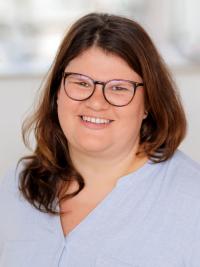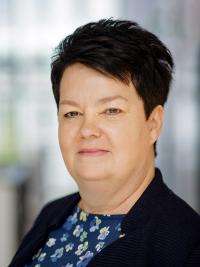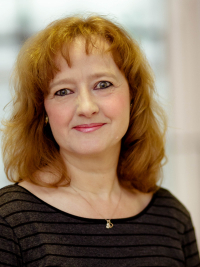In the degree program BA Early Childhood Education (BABEK) you will be qualified for the pedagogical work with children aged 0 to 12 years and the cooperation with families. In doing so, you will deal with concepts of childhood education and theories of developmental psychology, through which you will acquire comprehensive knowledge about the educational and developmental processes of children. You will be able to apply and reflect on this knowledge in the internships accompanying your studies in daycare centers, after-school care centers or family centers. This close connection between theory and practice enables you to gain in-depth insights into the upbringing and education of children and, with the acquisition of the bachelor degree, also state recognition as a childhood educator.
The Study
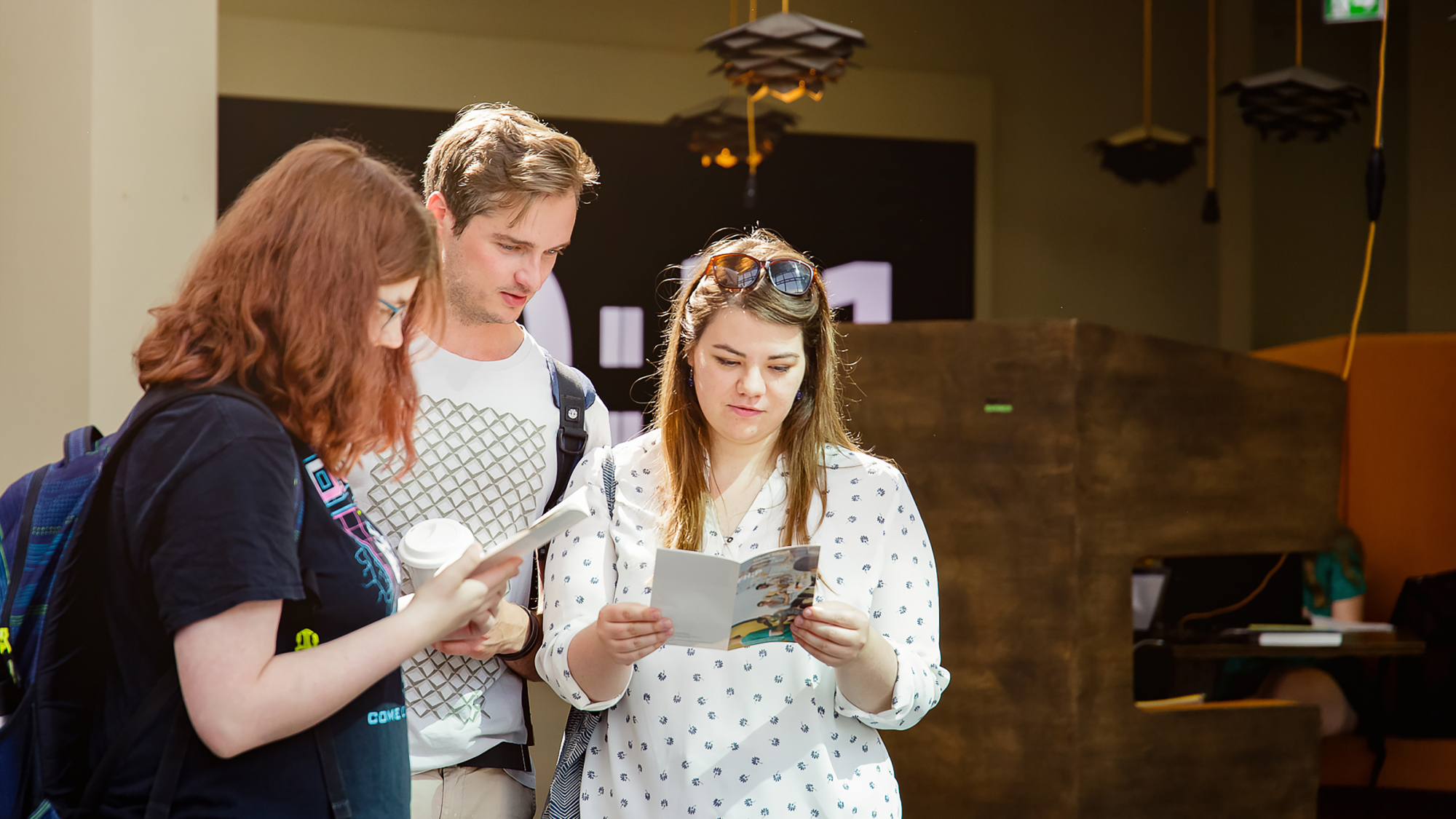
Info Day 2024
Get to know our degree programmes and find out more about our lecturers, research focuses and practice-oriented teaching methods at the Department of Social and Educational Sciences. Meet like-minded people and ask our student advisors questions.
Whether online or on campus – visit us on the 5th of June 2024 on the campus of the University of Applied Sciences Potsdam.
BABEK – Familiäre Lernatmosphäre mit hohem Praxisbezug
Im Studiengang BABEK teilen Studierende und Lehrende das Ziel, Kinder bestmöglich in ihrer Entwicklung zu begleiten. Organisation und Aufbau des Studiums ermöglichen ein vertrauensvolles und persönliches Verhältnis zwischen Studierenden und Lehrenden. Der sechssemestrige Vollzeit-Studiengang setzt dabei den Fokus auf gemeinsames Lernen und Forschen in Seminaren, auf eine familiäre Lernatmosphäre und einen hohen Praxisbezug. So ermöglichen wöchentliche Praxistage und mehrwöchige Praktika, das theoretische Wissen direkt anzuwenden und zu reflektieren. Häufig ergeben sich für die Studierenden während der Praxisphasen bereits Angebote für berufliche Tätigkeiten in Kindertageseinrichtungen, Horten oder Familienzentren.
BABEK – Familiar learning atmosphere with high practical relevance
In the bachelor's degree program Early Childhood Education (BABEK), students and teachers share the goal of accompanying children in their development in the best possible way. The organization and structure of the program allow for a trusting and personal relationship between students and teachers. The degree program with six full-time semesters focuses on joint learning and research in seminars, on a familiar learning atmosphere and a high practical relevance. Thus, weekly practical days and internships lasting several weeks enable students to directly apply and reflect on theoretical knowledge. During the practical phases, students are often offered jobs in day care centers, after-school care centers or family centers.
Special emphasis is placed in the BABEK program on the examination of modern psychoanalytical concepts, which will help you to understand and interpret the developmental processes of children. During your studies, you will also acquire competencies in the educational areas of art, language, natural sciences, and health and movement. Further content includes a basic understanding of the social and legal framework of education in childhood as well as competencies in the areas of leadership and management. Continuous practical phases and opportunities for reflection also promote the development of a research-based approach.
Was der BABEK-Studiengang Ihnen bietet
Der Studiengang BABEK qualifiziert Sie für die pädagogische Arbeit mit Kindern im Alter von 0 bis 12 Jahren und die Zusammenarbeit mit Familien. Er ermöglicht Ihnen so die staatliche Anerkennung als Kindheitspädagog*in.
Sie erlernen u. a. systematische Beobachtungsverfahren, Methoden der Gesprächsführung und den feinfühligen Umgang mit Kindern und Erwachsenen. Dadurch werden Sie zu einem fachlich begründeten pädagogischen Handeln befähigt. Durch die Arbeit in pädagogischen Einrichtungen während des Studiums und die Einbeziehung von Familien erweitern Sie auch Ihre Kommunikationsfähigkeiten.
Studieninhalte wie Kunst, Bewegung, Sprache oder Naturwissenschaften ermöglichen es Ihnen, Ihre kreativen und forschenden Tätigkeiten auszuweiten. Ein besonderes Augenmerk wird im Studiengang BABEK auf die Auseinandersetzung mit modernen psychoanalytischen Konzepten gelegt, die Ihnen helfen, Entwicklungsprozesse von Kindern zu verstehen und zu interpretieren. Diese psychoanalytischen Schwerpunkte bieten außerdem Phasen der Biografiearbeit und Selbstreflexion, die Sie in künftige Beratungstätigkeiten gut einbringen können. Durch kontinuierliche Praxisphasen und Angebote zur Reflexion wird zudem die Entwicklung einer forschenden Betrachtungsweise gefördert. Zu den weiteren Inhalten gehören ein Grundverständnis für die gesellschaftlichen und rechtlichen Rahmenbedingungen von Bildung im Kindesalter sowie Kompetenzen in den Bereichen Führen und Leiten.
Das Campusleben bietet Ihnen darüber hinaus viele Möglichkeiten für eigene Vorhaben z. B. im Campusgarten, im studentisch geführten Casino oder in Projekten mit Kindertageseinrichtungen im Umfeld der FH Potsdam. Auch unterstützt Sie ein Team von Pädagog*innen bei Fragen zu der Vereinbarkeit von Studium und Familie, u. a. durch eine flexible Kinderbetreuung.
Passt dieser Studiengang zu mir?
Diese Eigenschaften bringen Sie mit
- Interesse und Bereitschaft, die Arbeitsfelder Krippe und Kindergarten kennenzulernen
- Einfühlungsvermögen und gute Beobachtungsfähigkeit
- Interesse an den individuellen Entwicklungs- und Bildungsprozessen von Kindern
- Offenheit und Kommunikationsfähigkeit gegenüber Kindern und Erwachsenen
- Bereitschaft zur Selbstreflexion
- Interesse an wissenschaftlicher Arbeit und der Entwicklung eigener Fragestellungen
- Freude an kreativen Tätigkeiten
Sie wollen ins Ausland?
Bei uns haben Studierende die Möglichkeit, ohne Studienverlängerung ein Auslandssemester und Auslandspraktika zu absolvieren.
Unser besonderes Zertifikatsangebot "Kindheitspädagogik Track International" ermöglicht die Teilnahme an Sprach- und Vorbereitungskursen für den Auslandsaufenthalt sowie ein Seminar zur internationalen Qualitätsentwicklung und Professionalisierung.
Weitere Informationen erhalten Sie in den Studieninfobriefen und bei Ihren Ansprechpartner*innen im Fachbereich.
Contact
The colleagues at the student counselling service provide information to prospective students, first-year students, parents, teachers and students on all general questions about the degree programme. If you have specific questions or concerns about the part-time distance learning programme in social work (BA), please contact the subject counselling service or the programme coordination.
Subject Counselling Service
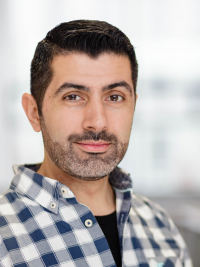
Dipl.-Päd. Filipe Martins Antunes
Studiengangskoordination
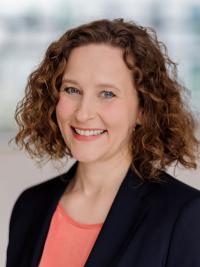
Katharina Fischer, B. A.
These degree programs might also interest you
More courses| Degree programme | Teaching language | Start of study | Application deadline | |
|---|---|---|---|---|
| |
Childhood Studies and Children's Rights (MA) | English | Winter semester | Note: This degree programme will no longer be offered from winter semester 2024/25
|
| |
Early Childhood Education (BA) | German | Winter semester | 15.05. – 15.07. (admission restricted)
|
| |
Early Childhood Studies (MA) | German | Winter semester | 15/05 – 15/08 (free of admission)
|
| |
MA Social Work with a Focus on the Family | German | Winter semester | 15.05. – 22.06. (NC degree program)
|
| |
Social Management (MA) | German | Summer semester | 01/12 – 31/03 (free of admission)
|
| |
Social Work (BA) | German, English | Winter semester | 15/05 – 15/07 (restricted admission)
|
| |
Social Work | Dual-Digital (BA) | German | Winter semester | 15/06 – 15/07 (free of admission)
|
| |
Social Work | Part-time Distance Learning Study Programme (BA) | German | Summer semester | 15/12 –15/01 (admission restricted)
|
Career Prospects
Career Prospects
The close integration of theory and practice enables a direct transfer of knowledge and the inclusion of everyday professional life from the first semester on. State recognition as a childhood educator is possible, as is a subsequent master's degree. Learn more about the professional profile of childhood educators.
Possible occupational areas
- Pedagogical work in institutions of (early) childhood education such as crèches, kindergartens, after-school care centers, all-day schools
- Cooperation in counseling centers and family centers
- Work in institutions for early help
- Institutions for assisted living for parents with young children
- Collaboration in practice reform projects
- Public relations and networking in the community
- Political education work
Possible MA programs at the University of Applied Sciences Potsdam

State recognition as a childhood educator
After obtaining the BA degree, you can apply for state recognition as a childhood educator. The basis for state recognition is the Brandenburg Social Professions Act. On the pages of the Ministry of Education, Youth and Sports of the State of Brandenburg and the State Office for Social Affairs and Supply of the State of Brandenburg you will find all important information.
The fact sheet of the Ministry of Education, Youth and Sports of the State of Brandenburg summarizes the documents to be submitted for state recognition as a childhood educator.
These degree programs might also interest you
More courses| Degree programme | Teaching language | Start of study | Application deadline | |
|---|---|---|---|---|
| |
Childhood Studies and Children's Rights (MA) | English | Winter semester | Note: This degree programme will no longer be offered from winter semester 2024/25
|
| |
Early Childhood Education (BA) | German | Winter semester | 15.05. – 15.07. (admission restricted)
|
| |
Early Childhood Studies (MA) | German | Winter semester | 15/05 – 15/08 (free of admission)
|
| |
MA Social Work with a Focus on the Family | German | Winter semester | 15.05. – 22.06. (NC degree program)
|
| |
Social Management (MA) | German | Summer semester | 01/12 – 31/03 (free of admission)
|
| |
Social Work (BA) | German, English | Winter semester | 15/05 – 15/07 (restricted admission)
|
| |
Social Work | Dual-Digital (BA) | German | Winter semester | 15/06 – 15/07 (free of admission)
|
| |
Social Work | Part-time Distance Learning Study Programme (BA) | German | Summer semester | 15/12 –15/01 (admission restricted)
|
Study Contents
Course of studies
The standard period of study for the full-time degree program in Early Childhood Education (BABEK) is six semesters and concludes with a Bachelor of Arts degree. The degree program consists of compulsory modules with some electives, research-based learning in workshops, practical days and weeks in self-selected institutions, also abroad.
| 1st – 2nd semester | compulsory modules, elective module, workshop module with weekly practical days |
| 3rd – 4th semester | Compulsory modules, elective modules, workshop module with internship |
| 5th – 6th semester | Compulsory modules, compulsory elective modules, workshop module with project and internship, bachelor thesis and colloquium |
Study Contents
The program consists of compulsory modules, some of which are elective, research-based learning in workshops, practical days in institutions of the student's choice, internships in Germany or abroad, and concludes with the writing of a bachelor's thesis.
The module overview of the BABEK program and the overview of the curriculum contain further information on the structure and content of the degree program.
Mandatory modules
- Methods of empirical social and educational research
- Competencies in childhood education
- Education and educational science
- Developmental psychology and psychoanalytical concepts
- Legal foundations
- Heterogeneity in elementary education
- Leading and guiding
- Inclusion and Diversity
- Bachelor thesis and colloquium
Elective modules
- Educational aesthetics (music or theater)
- Applied social and educational research
- Educational area health and movement (dance or psychomotricity)
- Development and support (psychoanalytical thinking and acting or reform and elementary school pedagogy)
- Educational area Communication and Science (Literacy, New Media or Children's/Picture Books)
- Flex module (elective offered by all departments of the university)
Teaching formats
In the degree program Early Childhood Education (BABEK), we work with different forms of learning so that the transfer of knowledge fits the respective topic and the students' daily study routine is varied.
- Seminars
- lectures
- self-organized study groups
- workshop seminars
- excursions
- practical days and longer internships
- Cooperation projects outside the university
Workshop modules
- Observation and documentation
- Bonding, education and promotion
- Project development
Projects from the department
More projects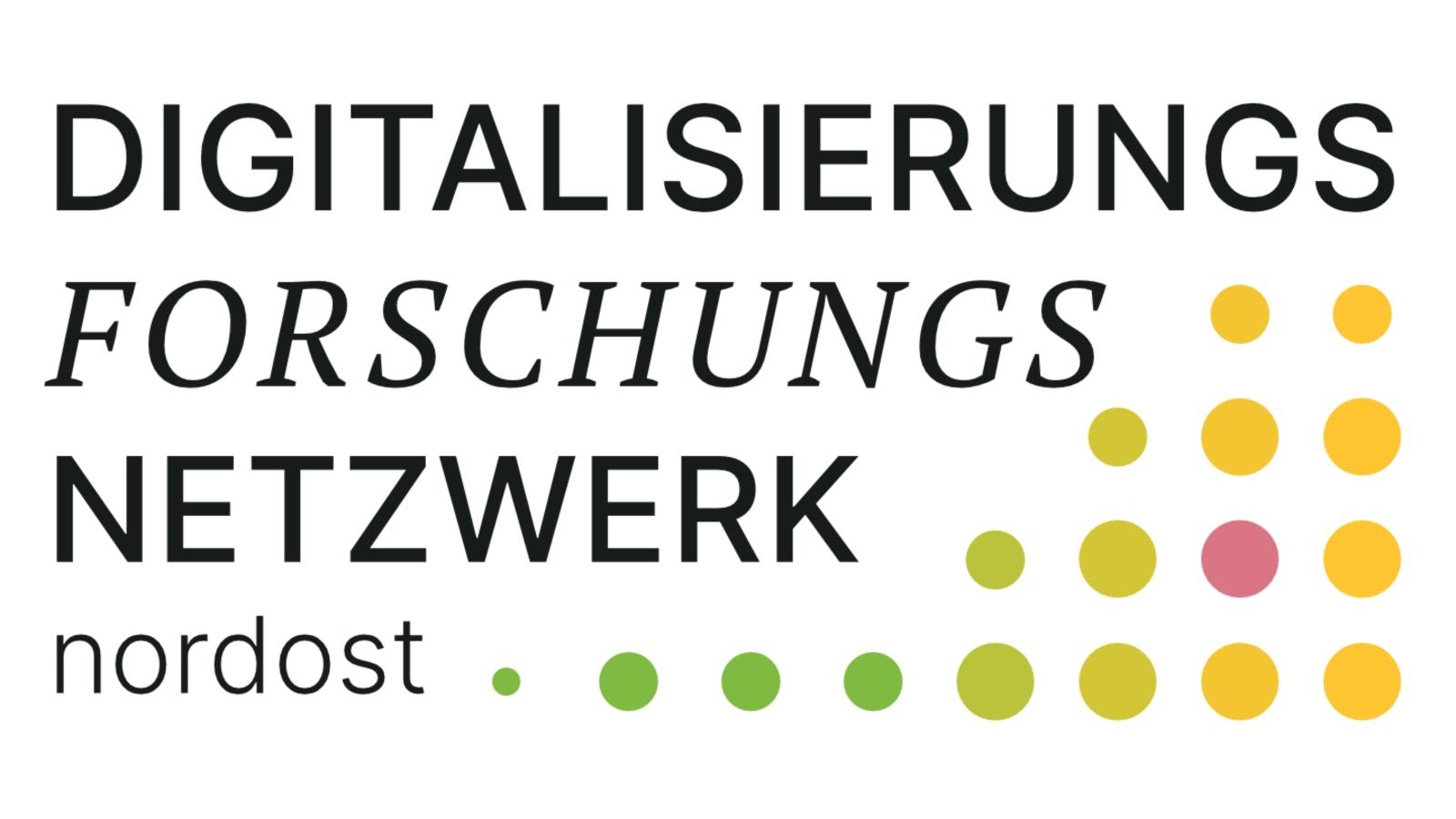
#GesellschaftBilden in the Digital Age. Perspectives of Social Work on Technological Challenges
The project establishes a cross-university network on digitalisation in social work as a subject of cooperative research and teaching.
SocialGestures – Gestures as Cultural Markers: The Importance of Tact Gestures for Social Preference and Learning in Childhoos and Early Childhood in France and Germany
SocialGestures is a joint research project of the University of Applied Sciences Potsdam and the Université Grenoble Alpes. The project was developed jointly and is being carried out under joint responsibility. It is funded by the German Research Foundation (GR 4756/3-1).

Self-help in the Context of Addiction, Penal System and Release from Prison
The study examines addiction self-help services in prison and after release from prison.
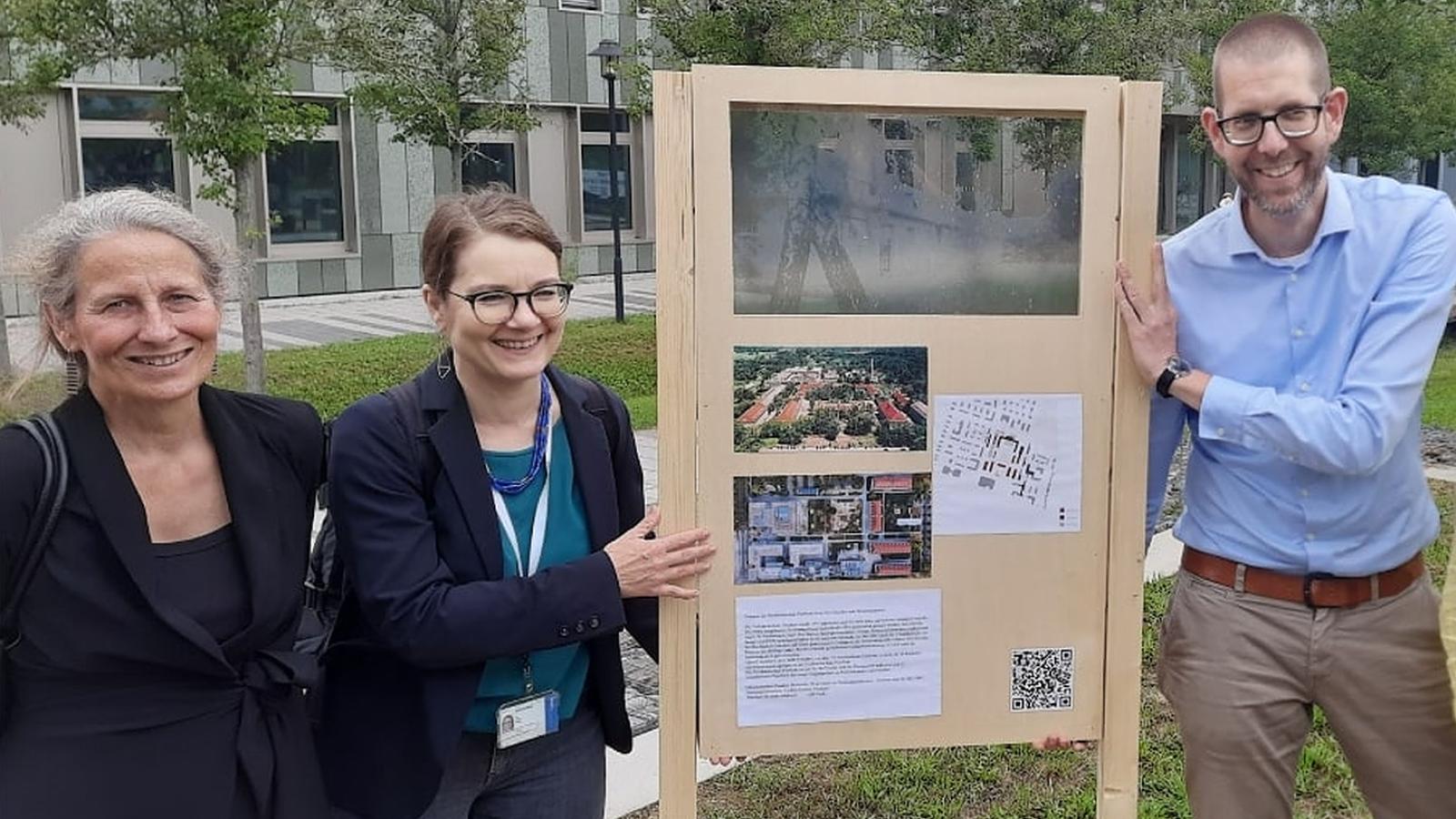
Me — We — Potsdam-Bornstedt: Biography of a District
In the spirit of the question formulated in the seminar title about the "biography of a district", Potsdam-Bornstedt was to be researched by means of an interdisciplinary and intergenerational approach in order to work out the urban and socio-spatial development of the district and ultimately make it presentable.
Application & Contact
Dates & requirements for your application
The most important deadlines, dates and admission requirements for the bachelor's degree programme in early childhood education are compiled here. You can find out which steps you need to take for a successful application in the next section.
Dates
- 5th of June: Info day for Social Work, Early Childhood Studies and Social Work (BASE online)
- until 15 January: register and submit online application
- until 15 January: apply for a higher semester to continue a degree programme you have started at the University of Applied Sciences Potsdam
Access requirements
- General university entrance qualification according to the Brandenburg university act: General university entrance qualification or entrance qualification for studies at universities of applied sciences or previous vocational training recognised as equivalent
So bewerben Sie sich!
Im Folgenden erläutern wir Ihnen, welche Aspekte Sie von der Registrierung zur zentralen Studienplatzvergabe bis zur Immatrikulation (Einschreibung) beachten sollten.
Further information
The following links provide you, and especially international applicants, with further information on the topics of application and enrolment at the University of Applied Sciences Potsdam.

International applicants
You would like to apply for studies from the first or a higher semester and have acquired your school-leaving qualification and/or university degree abroad? Then you can have degrees and achievements acquired abroad recognised and study with us.

Application & Enrolment Procedure
The application and study service provides information and advice on general questions regarding the application process, admission and enrolment at the University of Applied Sciences Potsdam, application for a higher semester, but also on topics such as compensation for disadvantages, part-time studies, waiting semesters and hardship applications.
Application & Enrolment University of Applied Sciences Potsdam
Contact & Services
The student counselling service provides information and advice on general questions about studying as well as on topics such as choosing a degree programme, application, enrolment and study organisation.
For subject-specific questions about module content, credit transfer, examinations or specialisations in the early childhood education degree programme (BA), the subject counselling service or programme coordination is the right place to go.
Subject Counselling Service

Dipl.-Päd. Filipe Martins Antunes
Studiengangskoordination

Katharina Fischer, B. A.
Study and Examination Service
Study Info Service
studien-info-service@fh-potsdam.de
bewerbungs-service@fh-potsdam.de
campuskarte@fh-potsdam.de
Study Service
studien-service@fh-potsdam.de
Exam Service
pruefungs-service@fh-potsdam.de
Family Affairs Commissioner
Office hours
Tue and Thu 9.30 am – 1.30 pm
Commissioner for University Employees with Impairment
Office hours
by arrangement
Contact persons department of student affairs
